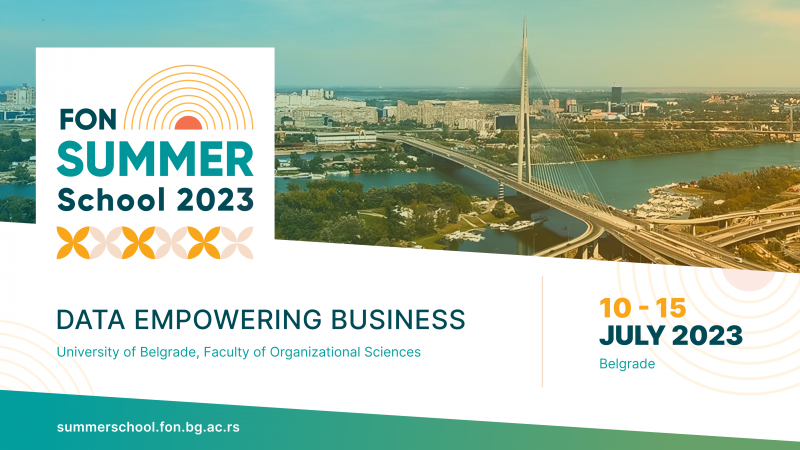1. General Information
Postgraduate studies in Security, Cryptography and Coding aim at a top European education and training staff, which after graduation will be able to meet the needs of the industry.
- Name of the proposer: University "Ss. Cyril and Methodius University in Skopje, Faculty of Information Sciences and Computer Engineering - FINKI
- Name of the study program: academic second cycle studies in Security, cryptography and coding
- Scientific-research area: technical-technological sciences, natural-mathematical and sciences
- Field: Computer Science and Informatics, Informatics
- Area: Other ( Computer Security, Cryptography, and Coding)
- The value of postgraduate studies is 60 ECTS or 120 ECTS credits .
- Duration of studies: 2 or 4 semesters .
- One academic year consists of two semesters lasting 30 weeks (1 semester = 15 weeks).
- The first semester consists of subjects, while the second consists of subjects and the final project, ie. master thesis.
- Admission Requirements : Completed undergraduate studies in computer science or computer science with a minimum of 240 credits. For study directions that carry less than 240 credits, exams offered in the introductory layer are added.
- Introductory layer : Students who have earned less than 240 credits during their studies are offered a set of differential introductory courses. After their successful realization, the student acquires the right to continue with the second year of postgraduate studies.
- First semester: 3 mandatorycourses and 2 electives, one of which may be from the University list.
- Second semester: 1 mandatoryand 1 elective, which can be from the university list (only if in the first semester the subjects are selected at the Faculty level) and a final project of 18 ECTS
- 1 ECTS credit corresponds to 30 hours of total work engagement
- The number of contact hours is 4
- The academic title or degree obtained after graduation is
- Master in Information Science and Computer Engineering in the field of security, cryptography and coding
2. Introductory layer
The introductory layer is intended for students who study for less than four years or have earned less than 240 credits from previous studies. The candidate should choose 4 courses from the proposed list, while the other 5 courses can be selected from the other courses offered at the faculty and one of the courses from the university list. If it happens that the candidate has already passed 7 or more of the recommended courses, then he has the right to choose a course from the other courses offered at the faculty.
Table 1: List of introductory layer items
| РБ |
Subject |
Semester |
ECTS |
| 1 |
mandatory subject 1 of Table 2 |
VII |
6 |
| 2 |
mandatory subject 2 of Table 2 |
VII |
6 |
| 3 |
mandatory subject 3 of Table 2 |
VIII |
6 |
| 4 |
mandatory subject 4 of Table 2 |
VIII |
6 |
| 5 |
Elective course 1 |
VIII |
6 |
| 6 |
Elective 2 |
VIII |
6 |
| 7 |
Elective course 3 |
VII |
6 |
| 8 |
Elective 4 |
VII |
6 |
| 9 |
Elective 5 |
VIII |
6 |
| 10 |
Selection from the university list of free courses |
VII |
6 |
Elective courses can be selected from the proposed list of courses of the study program, Table 2, or from the proposed lists of courses from the introductory layer of other study programs of the Faculty of Information Sciences and Computer Engineering. The choice of courses should be made in accordance with the previous knowledge of the candidate and the necessary knowledge to continue with the postgraduate studies in Internet technologies. Only one free choice of subject is allowed which is on the university list of subjects for the first year of two-year postgraduate studies.
Table 2: List of electives
After the successful completion of all ten courses and 60 credits, the student with previously acquired 180 ECTS credits (or completed three-year studies) continues with the courses from the second academic year of postgraduate studies - Table 3 (IX and X semester). p>
3. Studies
Table 3: List of Postgraduate Courses
When choosing the courses, at least one elective course should be chosen from the offered elective courses in Table 4. The remaining elective courses can be selected from courses offered in all directions of the second cycle of studies at the Faculty of Information Sciences and Computer Engineering, and one of the electives can be chosen from the University list of courses of the second cycle of studies.
Table 4: Electives
The student can choose a subject from the list of offered elective courses from all study programs of the second cycle of studies. The list of offered electives can be found on this link .



